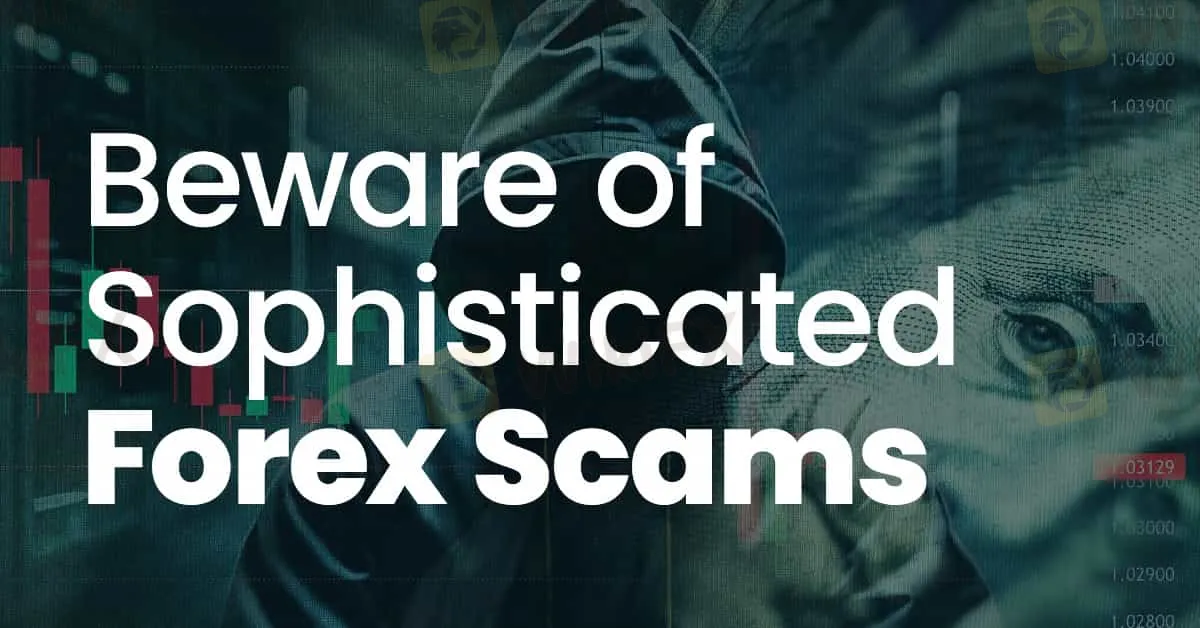简体中文
繁體中文
English
Pусский
日本語
ภาษาไทย
Tiếng Việt
Bahasa Indonesia
Español
हिन्दी
Filippiiniläinen
Français
Deutsch
Português
Türkçe
한국어
العربية
Unveiling the Algorithmic Mirage: Beware of Sophisticated Forex Scams
Abstract:The world of Forex trading is dynamic and ever-evolving, offering opportunities for profit but also attracting the attention of scammers seeking to exploit the unwary. One particularly deceptive form of scam that has emerged is the Algorithmic Mirage. In this article, we'll delve into the intricacies of this sophisticated scam, exploring how fraudsters lure traders with promises of cutting-edge technology and artificial intelligence, only to leave them with substantial financial losses.

The world of Forex trading is dynamic and ever-evolving, offering opportunities for profit but also attracting the attention of scammers seeking to exploit the unwary. One particularly deceptive form of scam that has emerged is the Algorithmic Mirage. In this article, we'll delve into the intricacies of this sophisticated scam, exploring how fraudsters lure traders with promises of cutting-edge technology and artificial intelligence, only to leave them with substantial financial losses.
The Allure of Algorithmic Trading
Algorithmic trading, also known as algo-trading, has gained popularity for its ability to execute trades with speed and precision based on pre-programmed criteria. Traders are drawn to the idea of leveraging advanced algorithms to navigate the complex and fast-paced Forex market, hoping to capitalize on market movements more efficiently than traditional manual trading.
The Scammer's Pitch
In the Algorithmic Mirage scam, fraudsters exploit traders' fascination with algorithmic trading by promoting a revolutionary trading system. Through enticing advertisements and persuasive marketing, scammers promise a one-of-a-kind algorithm that uses state-of-the-art technology and artificial intelligence to analyze market data and generate profitable signals.
Demo Version Deception
To convince potential victims of the algorithm's effectiveness, scammers provide access to a demo version of the trading system. This demo often showcases impressive simulated profits, creating a false sense of security and reliability. Traders, eager to capitalize on the promised gains, may be persuaded to subscribe to the full version of the algorithm.
The Live Trading Deception
Once traders subscribe and apply the algorithm to live trading, the deception becomes apparent. The algorithm may manipulate market data, creating a mirage of profits that are not reflective of actual market conditions. While the demo version showed consistent gains, the live trading results are often erratic and lead to significant financial losses for unsuspecting traders.
Manipulating Market Data
In the Algorithmic Mirage scam, scammers employ various techniques to manipulate market data. This could involve creating artificial price movements, exploiting liquidity gaps, or even executing simulated trades that don't impact the real market. By distorting the perception of the algorithm's performance, scammers aim to deceive traders into believing they have discovered a foolproof way to profit from the Forex market.
The Disappearing Act
As traders start experiencing losses and attempt to seek explanations or refunds, the scammers execute the final act of the deception – the disappearing act. Contact details become unreachable, and customer support is nonexistent. Traders are left bewildered, with no recourse for recovering their losses or holding the scammers accountable.
Protecting Yourself from the Algorithmic Mirage
Due Diligence:
Before investing in any algorithmic trading system, conduct thorough research on the provider. Look for reviews, testimonials, and independent analyses to verify the legitimacy of the service.
Realistic Expectations:
Be wary of promises that seem too good to be true. Algorithmic trading, like any form of trading, involves risk, and there are no guarantees of consistent profits.
Trial Periods and Refund Policies:
Legitimate providers often offer trial periods or money-back guarantees. Use these opportunities to test the algorithm's performance in real market conditions before committing to a subscription.
Regulatory Compliance:
Check if the trading system provider is registered with relevant financial authorities. Reputable providers adhere to regulatory standards, providing an additional layer of security for traders.
Enhancing Your Due Diligence with WikiFX
In the quest for a trustworthy trading environment, WikiFX acts as a reliable companion, offering not just information but also a community of traders sharing their experiences and insights. The collaborative nature of the platform creates a network of informed traders, strengthening the collective defense against fraudulent schemes.
When considering an algorithmic trading system or any Forex-related service, WikiFX can be an invaluable ally in your due diligence process. By leveraging WikiFX's extensive database and analytical tools, traders can verify the legitimacy of trading platforms, ensuring they are dealing with reputable and regulated entities.
WikiFX's user-friendly interface allows traders to access broker profiles, read real user reviews, and explore regulatory information with ease. This transparency helps traders make educated choices, reducing the risk of falling victim to scams such as the Algorithmic Mirage.
To explore the wealth of information that WikiFX has to offer and to enhance your trading journey, visit their website at www.wikifx.com. Empower yourself with knowledge, protect your investments, and join the global community of traders making informed decisions with WikiFX. Your journey to a safer and more secure Forex trading experience begins here.

Disclaimer:
The views in this article only represent the author's personal views, and do not constitute investment advice on this platform. This platform does not guarantee the accuracy, completeness and timeliness of the information in the article, and will not be liable for any loss caused by the use of or reliance on the information in the article.
Read more

Authorities Alert: MAS Impersonation Scam Hits Singapore
MAS scam alert: Scammers impersonate officials, causing $614K losses in Singapore since March 2025. Learn how to spot and avoid this impersonation scam.

Billboard Warns of Crypto Scams Using Its Name – Stay Alert!
Billboard warns against fake crypto scams using its brand. Learn how to spot fraud and protect yourself from fake promotions.

The Impact of Interest Rate Decisions on the Forex Market
Interest rate changes determine currency attractiveness, influencing capital flows and exchange rate trends. Understanding this mechanism helps investors navigate the forex market effectively.

Rising WhatsApp Scams Highlight Need for Stronger User Protections
UK consumers lose £2,437 on average to WhatsApp scams. Revolut demands stricter verification and AI monitoring to combat rising fraud on Meta platforms.
WikiFX Broker
Latest News
The Withdrawal Trap: How Scam Brokers Lure Victims into Paying More
FCA to Investors: Think Twice Before Trusting These Brokers
Trump\s tariffs: How could they affect the UK and your money
Trump gambles it all on global tariffs he\s wanted for decades
TradingView Brings Live Market Charts to Telegram Users with New Mini App
Trump tariffs: How will India navigate a world on the brink of a trade war?
Interactive Brokers Launches Forecast Contracts in Canada for Market Predictions
Authorities Alert: MAS Impersonation Scam Hits Singapore
Stocks fall again as Trump tariff jitters continue
IG Group Acquires Freetrade for £160M to Expand UK Investment Market
Currency Calculator







